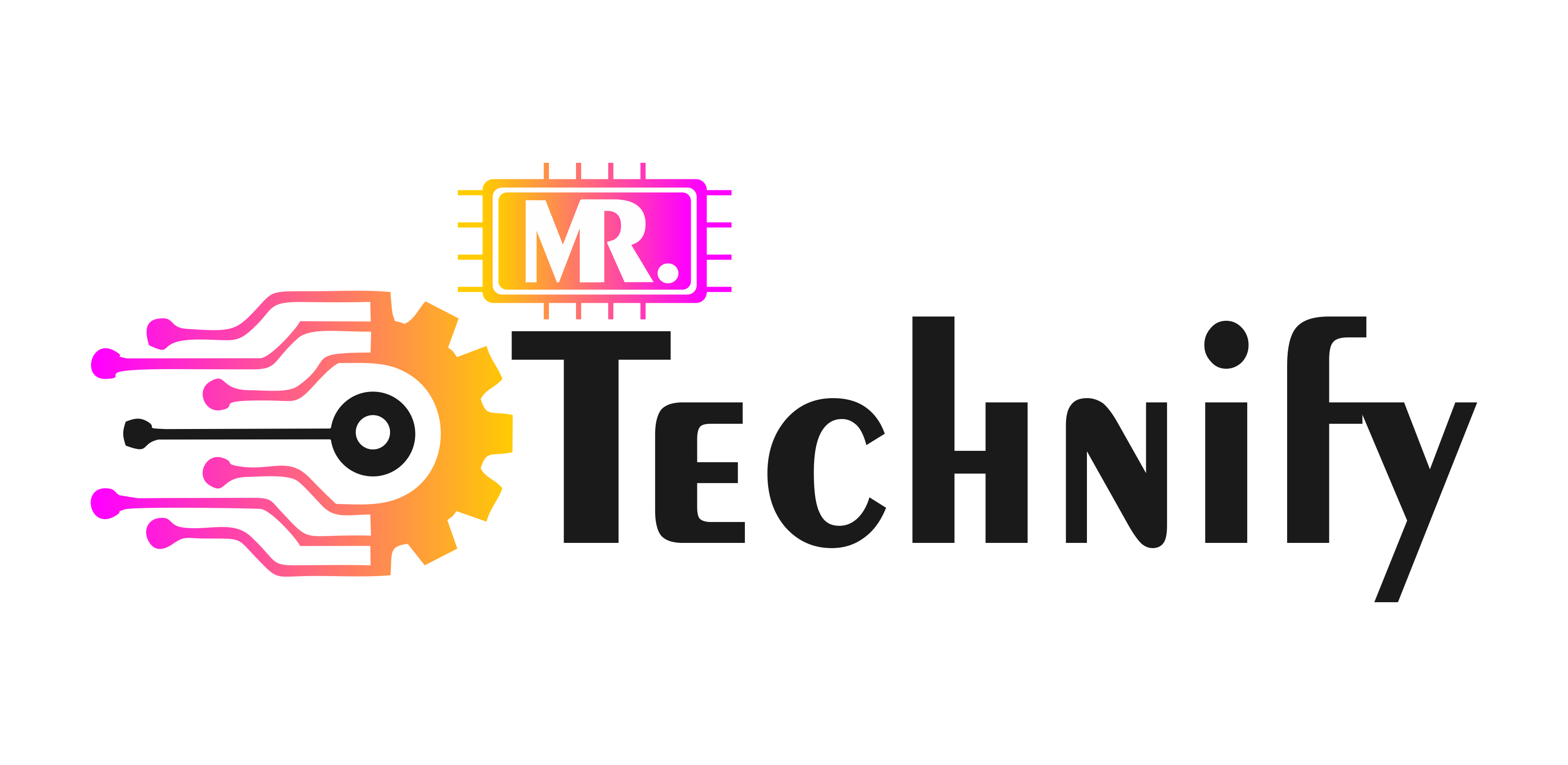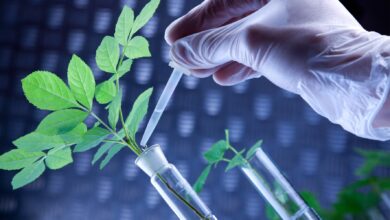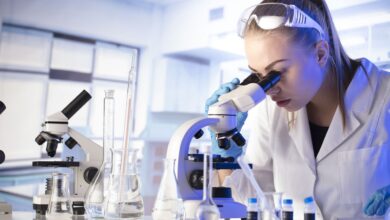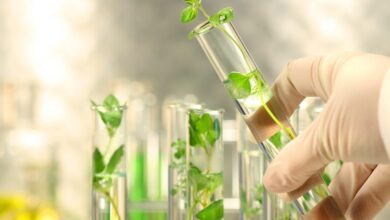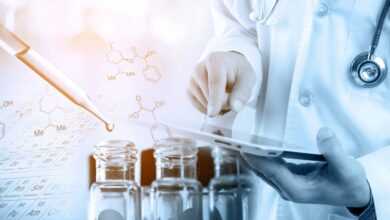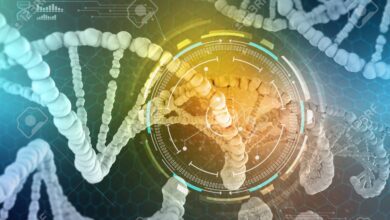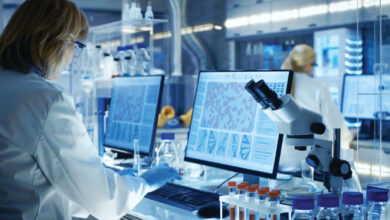Synthetic Biology in Biotechnology
Synthetic Biology in Biotechnology provides an intriguing frontier that might improve health care, environment, and agriculture. Before we get deep, let’s start at the beginning. Synthetic biology—how does it fit into biotechnology?
-
Defining Synthetic Biology
Synthetic biology is a relatively novel discipline that combines biology and engineering to enable the design and construction of biological systems that perform specific functions.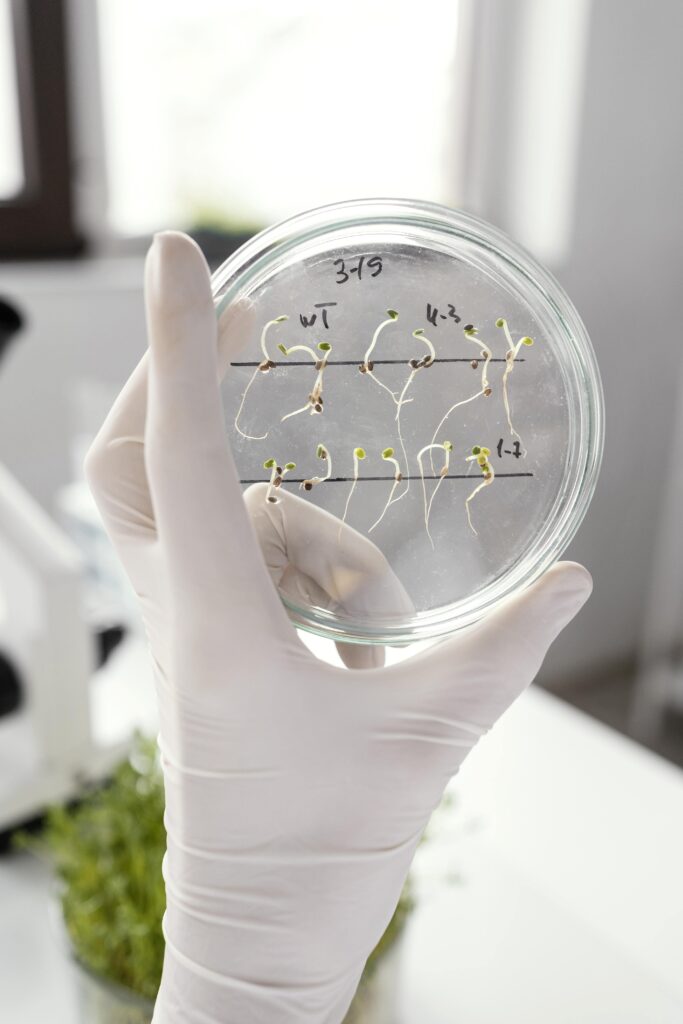
-
The Origins of Synthetic Biology
With the development of genetic engineering in the late twentieth century, the seeds of synthetic biology were sowed. However, we have yet to begin to see this labour’s fruits. This is due to advances in genetic knowledge and improved biotechnological technologies.
The Purpose of Synthetic Biology in Biotechnology
Synthetic biology seeks to design and build novel biological elements, devices, and systems that do not exist in nature or to redesign existing systems.
-
Interplay of Synthetic Biology in Biotechnology
Biotechnology employs biological systems and organisms in the production or development of goods. Synthetic biology fits snugly into this definition. It’s like taking the bricks nature gave us and using them to build an entirely new kind of building.
-
From Nature to Lab: Bridging the Gap
To paint a symbolic picture, imagine nature as an orchestra. Each organism, each cell, and each molecule is an instrument, contributing to the symphony of life. Synthetic biology is like composing a new symphony using the same tools.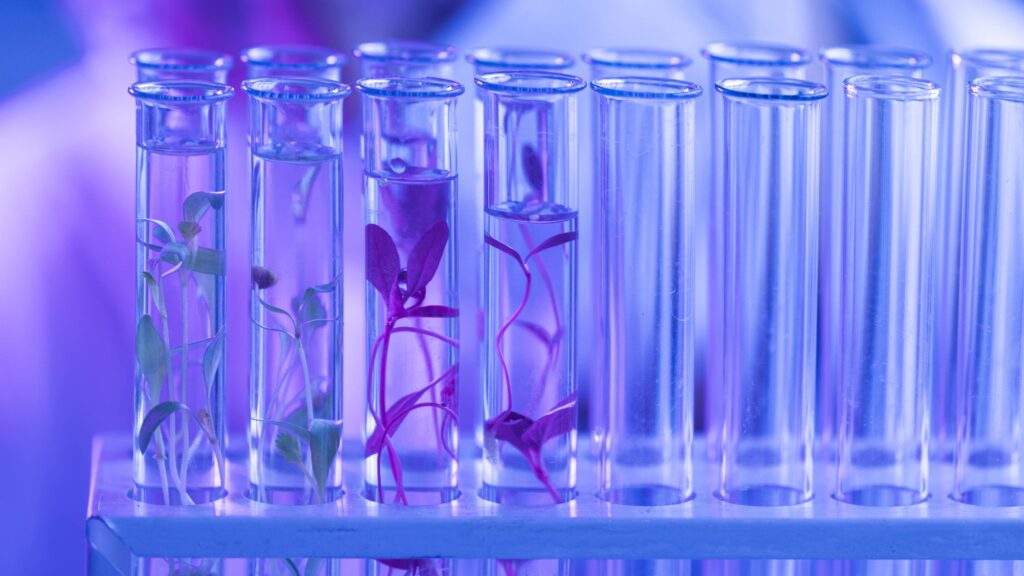
-
The Toolbox of Synthetic Biology in Biotechnology
So, what tools does synthetic biology bring to the biotechnology table? The list is extensive, from DNA synthesis and gene editing tools like CRISPR to computational models that can predict biological behavior.
Applications of Synthetic Biology in Biotechnology
Synthetic biology has vast potential and can be applied to various sectors. It’s like an imaginative child given a Lego set; the possibilities are boundless.
-
Drug Production and Health Care
Consider health care. Synthetic biology can lead to a revolution in the way we produce drugs and treat diseases.
-
Customized Medicine
The idea of “one-size-fits-all” medication is being replaced with personalized treatments tailor-made for an individual’s genetic makeup, thanks to synthetic biology.
-
Bio-artificial organs
The organ donation crisis could be a thing of the past, with bio-artificial organs grown in labs.
Environmental Protection and Restoration
The applications extend beyond health, stretching into environmental protection and restoration.
-
Biofuels
One key area is the development of biofuels that are cleaner and more sustainable than fossil fuels.
Pollution Control
Pollution-eating microbes could help us clean up oil spills and other environmental disasters.
Agricultural Biotechnology
Synthetic biology can also significantly impact agriculture.
-
Enhanced Crops
Imagine crops more resistant to pests and harsh climates, reducing the need for harmful pesticides and enabling us to feed the ever-growing global population.
-
Pesticide-Free Farming
Speaking of pesticides, synthetic biology could render them obsolete. By engineering pest-resistant crops, we might reduce, if not eliminate, the need for these harmful chemicals.
The Ethical Implications of Synthetic Biology in Biotechnology
As with any potent technology, synthetic biology has its fair share of ethical implications.
-
Biosecurity and Safety Issues
What if a harmful synthetic organism were to escape into the wild? Or worse, what if such organisms were deliberately released?
-
Ethical and Moral Questions
Not to mention the ethical problem: Should we design life simply because we can?
Looking Ahead: The Future of Synthetic Biology in Biotechnology
Synthetic biology will transform biotechnology by integrating biology and engineering. This method will enable genetically altered organisms to produce complicated pharmaceutical compounds, making life-saving vaccinations and tailored medications more efficient.
Conclusion
In conclusion, synthetic biology is an effective tool in the biotechnology toolbox. It has immense potential, from revolutionizing health care to tackling environmental issues and enhancing agriculture. However, it also opens Pandora’s box of ethical and safety questions that society must address.
FAQs for Synthetic Biology
How does synthetic biology relate to biotechnology?
A tool in biotechnology is synthetic biology. For specific purposes, it enables us to create brand-new biological systems or alter already existing ones.
What are some applications of synthetic biology in biotechnology?
Synthetic biology can be applied in many areas including health care (for drug production and creating bio-artificial organs), environmental protection (through the creation of biofuels and pollution control mechanisms), and agriculture (by engineering enhanced crops and promoting pesticide-free farming).
What are the ethical implications of synthetic biology?
Synthetic biology raises several ethical issues, including biosecurity concerns and moral questions about the extent to which we should manipulate life.
